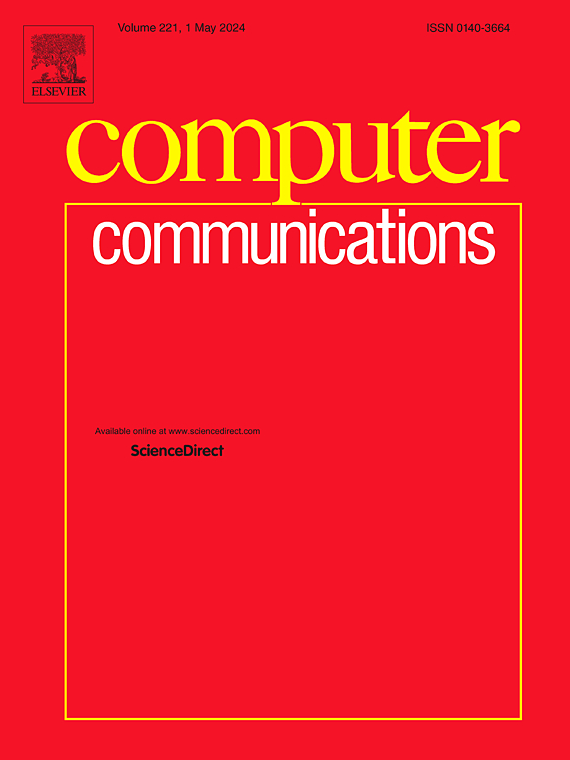A slot-based energy storage decision-making approach for optimal Off-Grid telecommunication operator
IF 4.3
3区 计算机科学
Q1 COMPUTER SCIENCE, INFORMATION SYSTEMS
引用次数: 0
Abstract
This paper proposes a slot-based energy storage approach for decision-making in the context of an Off-Grid telecommunication operator. We consider network systems powered by solar panels, where harvest energy is stored in a battery that can also be sold when fully charged. To reflect real-world conditions, we account for non-stationary energy arrivals and service demands that depend on the time of day, as well as the failure states of PV panel. The network operator we model faces two conflicting objectives: maintaining the operation of its infrastructure and selling (or supplying to other networks) surplus energy from fully charged batteries. To address these challenges, we developed a slot-based Markov Decision Process (MDP) model that incorporates positive rewards for energy sales, as well as penalties for energy loss and battery depletion. This slot-based MDP follows a specific structure we have previously proven to be efficient in terms of computational performance and accuracy. From this model, we derive the optimal policy that balances these conflicting objectives and maximizes the average reward function. Additionally, we present results comparing different cities and months, which the operator can consider when deploying its infrastructure to maximize rewards based on location-specific energy availability and seasonal variations. Experimental results show that our proposed algorithm outperforms classical methods in large-scale scenarios. While Relative Value Iteration algorithm remains competitive on smaller instances, its convergence time increases significantly under strict precision requirements (e.g., ). In contrast, our method maintains both speed and robustness, solving MDPs with up to states and 100 actions in under one hour, whereas standard approaches exceed seconds.
基于槽位的最优离网电信运营商储能决策方法
提出了一种基于槽位储能的离网电信运营商决策方法。我们考虑由太阳能电池板供电的网络系统,其中收集的能量存储在电池中,电池充满电后也可以出售。为了反映现实世界的情况,我们考虑了非平稳的能源到达和服务需求,这些需求取决于一天中的时间,以及光伏电池板的故障状态。我们所建模的网络运营商面临着两个相互冲突的目标:维持其基础设施的运行,并从充满电的电池中出售(或供应给其他网络)剩余的能量。为了应对这些挑战,我们开发了一种基于槽位的马尔可夫决策过程(MDP)模型,该模型结合了对能源销售的积极奖励,以及对能源损失和电池耗尽的惩罚。这个基于槽的MDP遵循一种特定的结构,我们之前已经证明这种结构在计算性能和准确性方面是有效的。从这个模型中,我们推导出平衡这些相互冲突的目标并使平均奖励函数最大化的最优策略。此外,我们还提供了不同城市和月份的对比结果,运营商在部署基础设施时可以根据特定地点的能源可用性和季节变化来最大化回报。实验结果表明,该算法在大规模场景下优于经典方法。虽然相对值迭代算法在较小的实例上仍然具有竞争力,但在严格的精度要求下(例如ϵ<;10−10),其收敛时间显着增加。相比之下,我们的方法保持了速度和鲁棒性,在一小时内解决了多达2×105状态和100个动作的mdp,而标准方法超过104秒。
本文章由计算机程序翻译,如有差异,请以英文原文为准。
求助全文
约1分钟内获得全文
求助全文
来源期刊

Computer Communications
工程技术-电信学
CiteScore
14.10
自引率
5.00%
发文量
397
审稿时长
66 days
期刊介绍:
Computer and Communications networks are key infrastructures of the information society with high socio-economic value as they contribute to the correct operations of many critical services (from healthcare to finance and transportation). Internet is the core of today''s computer-communication infrastructures. This has transformed the Internet, from a robust network for data transfer between computers, to a global, content-rich, communication and information system where contents are increasingly generated by the users, and distributed according to human social relations. Next-generation network technologies, architectures and protocols are therefore required to overcome the limitations of the legacy Internet and add new capabilities and services. The future Internet should be ubiquitous, secure, resilient, and closer to human communication paradigms.
Computer Communications is a peer-reviewed international journal that publishes high-quality scientific articles (both theory and practice) and survey papers covering all aspects of future computer communication networks (on all layers, except the physical layer), with a special attention to the evolution of the Internet architecture, protocols, services, and applications.
 求助内容:
求助内容: 应助结果提醒方式:
应助结果提醒方式:


